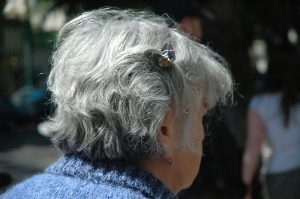 We were enjoying a summer holiday visit with some of my husband’s long time friends. We sat on comfortable, well-cushioned chairs in one of two seating areas on the front porch, talking and sipping our cool drinks. Large, purple rhododendron blooms covered the bushes below the porch, stretching their tops to within our reach. The walkway leading up to the house was lined with a myriad of colorful flowers. Wide wooden boards beneath our feet sported a fresh coat of paint. Sunlight played with the stain-glassed panel in the front door as it tried to compete with the colorful floral display surrounding the home. The community was quiet; neighbors were most likely away for the long holiday weekend. Everything was picture perfect.
We were enjoying a summer holiday visit with some of my husband’s long time friends. We sat on comfortable, well-cushioned chairs in one of two seating areas on the front porch, talking and sipping our cool drinks. Large, purple rhododendron blooms covered the bushes below the porch, stretching their tops to within our reach. The walkway leading up to the house was lined with a myriad of colorful flowers. Wide wooden boards beneath our feet sported a fresh coat of paint. Sunlight played with the stain-glassed panel in the front door as it tried to compete with the colorful floral display surrounding the home. The community was quiet; neighbors were most likely away for the long holiday weekend. Everything was picture perfect.
We chatted with the family matriarch, a dear woman now in her mid-eighties and like many of her generation, struggling with dementia. The conversation turned to family and my husband mentioned that his mother had passed away just a brief two weeks earlier. Claire’s face fell.
“You said your mother passed away? Oh…I’m so very sorry. That’s so hard to lose someone so special. How old was she?” She shook her head as if to say, “this sort of thing is so hard, I wish you didn’t have to go through this.” We talked a few more minutes and were touched by her sincere empathy.
But there was a deeper layer of sadness present in the moment. Claire was truly saddened by the death of our “Mom,” but she was completely unaware that the woman of whom we spoke was one of her dearest friends. Claire and Ann’s friendship bloomed when they became neighbors sixty years earlier. They drank coffee and chatted over the backyard fence while their children played together. They babysat and changed diapers for each other’s little ones – and there were a lot – 17 children between them. Ann brought over cakes for special occasions and Claire baked her sweet pastry to share. They played cards, shared meals and went to concerts. They saw each other’s family grow as children got married and grandchildren entered the scene. They laughed together. They cried together. They shared over sixty years of friendship – and now Claire’s mind couldn’t grasp that it was over. Her children had told her of Ann’s passing, but dementia has robbed her mind of the ability to remember the information. But yet, the beauty of her compassionate heart shown through as she empathized with us in our loss.
The conversation turned to other things and after awhile, Claire told her son she wanted to go home. The only problem was that this beautiful house where we spent the afternoon was her home. She’d lived here for fifty years – raised her children here, hosted dozens of holiday meals and birthday parties here, but she no longer recognized it. Her son proceeded to walk her to his car and drive around town in a frequent ritual. The drive resets her brain so that she finally recognizes her house and feels satisfied that she is indeed home.
I commented to one of Claire’s daughters, “It’s so interesting how this disease affects everyone so differently. My Mom doesn’t struggle with this particular issue, but she has other difficulties that your Mom doesn’t. It’s so heartbreaking that your Mom can’t remember her beautiful home.”
The reply – “Yeah, this disease sucks.”
And, in truth it does. As caregivers and family members, we watch our loved ones slowly slip away and lose memories and the skills they need to function daily. We become weary of the constant repetitive questions, and are baffled that what was remembered just yesterday is forgotten today. Yet, the essence of these aged-ones remains and sometimes peeps out of the gray fog that has settled over them to remind us that the soul within lives on, even if the mind is fading. They may not remember all the facts, but their faithful hearts and love for others remains. We saw that in Claire and will always remember the look of sincere empathy and concern on her face that day. The kind and loving person she was during sixty years of friendship still remains, even if some of the outer trappings do not.
